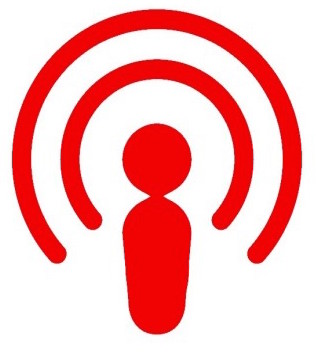7 - Media interviews
| Appearing in person |
Being interviewed for the broadcast media can be daunting. But there are some basic rules and techniques which will increase your chances of being effective.
First, remember that you are the expert, and that’s why they’ve asked for an interview with you.
Second, this is a great opportunity to talk about the wonderful work that your organisation does, or the importance of its impact. Broadcast interviews are particularly good for this because you are appearing in person and cannot easily be misquoted.
Third, the interviewer will want you to perform well, as it will make for a better interview. They may challenge you to justify your answer, but they won’t be trying to trip you up unless they are investigating some wrong-doing and think you are hiding something.
BEFORE AGREEING
It is important to know why an interview is being requested. This may be obvious if it is in response to a press release you have sent them, but it is still important to check the following:
- What is the angle or context for the interview?
- What is the likely line of questioning?
- Will it be live or recorded?
- Who is likely to be viewing or listening to the interview when it is broadcast (the target audience)?
Ask yourself if the interview is likely to be to your organisation’s advantage or disadvantage. Will it help you achieve your overall communications objectives?
Will it enable your organisation to communicate its key messages to its target audiences? Are there any negatives?
Many people want to know what questions will be asked. Do not be surprised if the journalist does not tell you. They may not know precisely what questions they will ask, because they will need to react to what you say in the interview. However, it is legitimate to ask what areas of questioning are going to come up.
THE DAY OR HOUR BEFORE
Prepare thoroughly. Think carefully about the likely questions and responses.
What is your overall communications objective?
How will this interview contribute?
Think of human examples that illustrate the point you are trying to make. Real stories about real people are very powerful.
What are your key messages?
WHAT IS A KEY MESSAGE?
A key message is the thing you want people to remember after they have heard you being interviewed.
Key messages need to be simple and easy to grasp. This helps the audience understand what you are trying to say, but it also means you are more likely to remember them in the heat of doing a broadcast interview.
Examples of key messages could be:
- We are launching a new campaign
- We are doubling our effort to combat certain types of poverty/climate change/etc.
- We want people to engage via our website (so here is the web address)
- We are holding an event/publishing a report
In a three minute broadcast interview, try to focus on getting across just three or four key messages. Any more than that will sound confusing.
DURING THE INTERVIEW
Treat a broadcast interview like a conversation between you (the expert) and someone who is interested in your work, but who does not know anything about it.
Focus on the person who is interviewing and try to engage them in the subject. Make them interested by talking with passion and authority. Ignore all the surrounding technology like a camera or microphone. Just talk to this one person.
Do not think too hard about the audience. They are simply eavesdropping on your fascinating conversation.
A live interview gives you more control as it cannot be edited.
ON THE RECORD
You should treat any discussion with a journalist as ‘on the record’, which means they might use it in a story. Just because an interviewer has closed a notebook or switched off a recorder it does not mean they have stopped being a journalist.
If you have a very good relationship with a specific journalist it may be possible to fill them in off the record on some background which may help them to understand a controversial aspect of the story. But only do this rarely and if you are completely confident that they will respect your confidentiality.
HOW TO PREPARE
The golden rule for a media interview is prepare and rehearse, prepare and rehearse, and then prepare and rehearse!
But do not learn a script. Rehearse useful phrases and prepare examples to illustrate your key messages.
Practise what you hope to say in front of a mirror. Even better, work with a colleague, with one of you playing the role of the journalist.
The aim is to sound articulate and confident - practice always helps.
KEY POINTS
- Treat a broadcast interview as a great opportunity for some publicity for your organisation.
- Focus your preparation on the key messages you’d like to get across.
- Do not learn a script. Rehearse useful phrases and prepare examples to illustrate your key messages.
- A live interview gives you more control as it cannot be edited.
LISTEN TO THE EXPERTS
Click below to hear our podcast on this topic.
|
|
|
This podcast includes tips and comments from a range of experts, including former BBC journalist Mark Gregory from FERN, a forestry NGO. |

